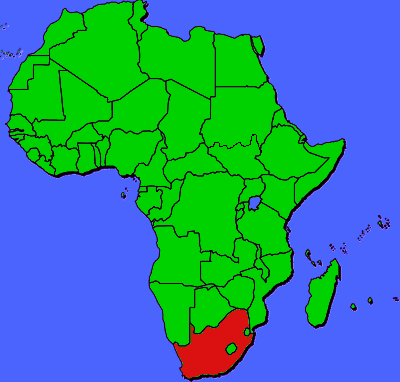
Circle the area on this map

D. Colonists from the Dutch East Indies Company started moving to the southern tip of Africa in the 1600's. Their descendants continued to comprise the majority of the white population through a period of British rule in the 19th and early 20th century.
C. South Africa occupied the territory that is now Namibia in 1915 after defeating German colonial forces during World War I. The territory was administered as a de facto province, with its white minority having representation in the whites-only South African parliament. After decades of struggle, Namibia gained independence from South Africa in 1990.
B. South Africa's economy is the largest and most developed in Africa, but about a quarter of its population is unemployed and living on less than $1.25 a day. Sweden and its wealthy European neighbors have the most income equality, according to the CIA World Factbook.
A. With 5.6 million people infected, South Africa has more people with HIV/AIDS than any other country in the world. AIDS caused as much as 47 percent of the nation's deaths annually in the early 2000s as South Africa's then leaders denied any link between HIV virus and the soaring death rate. A person born in South Africa is expected to live an average of 49.48 years.